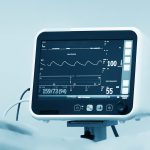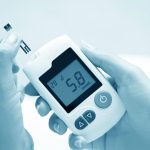EUROPE
1.Dutch Health and Youth Care Inspectorate (IGJ): As of 1 September, all medical devices must again have a CE marking
As of 1 September 2020, all medical devices used by care providers must have a CE marking. Since mid-March, due to shortages caused by the corona pandemic, the Dutch Health and Youth Care Inspectorate (IGJ) has temporarily allowed the use of alternative medical devices without a CE marking in case of emergencies. As of 1 September, that will no longer be the case. For the time being, an exception will be made for surgical face masks, gloves, and requisites for corona tests.
As of September, manufacturers and suppliers will also not be permitted to deliver medical devices without a CE marking. A CE marking guarantees that their product complies with the legal requirements.
2.European Commission Implementing Regulation (EU) 2020/1207: sets common specifications for reprocessing single-use devices
This Regulation lays down rules for the application of Article 17(3) of Regulation (EU) 2017/745, where national law has permitted reprocessing of single-use devices and a Member State has decided not to apply all of the rules relating to manufacturers’ obligations laid down in that Regulation as regards single-use devices that are reprocessed and used within a health institution. This Regulation also lays down rules where a Member State has chosen to apply Article 17(3) of Regulation (EU) 2017/745 also as regards single-use devices that are reprocessed by an external re-processor.
The regulation includes several changes from the draft version released for comment in July 2019. (RELATED: EC offers specifications for reprocessing single-use devices underMDR, Regulatory Focus 25 July 2019).
3.MDCG: Eudamed actor registration moduleand of the Single Registration Number (SRN) in the Member States
In a position paper released 18Aug, the European Commission’s Medical Device Coordination Group (MDCG) confirmed that the Eudamed actor registration module will be deployed on 1 December 2020.
The Commission said it would pursue a phased rollout of the six Eudamed modules prior to the May 2022 date of application.
MDCG explains that the actor registration module is a “prerequisite” for accessing Eudamed and using its other modules and “strongly encourage[s] the use of the actor registration module by all relevant actors on their territories, including the use of the single registration number [SRN] by actors as stipulated in the [Medical Device Regulation] MDR.”
MDCG also clarifies that “double registration requirements for actors should be avoided as much as possible,” and says that actors, including manufacturers, authorized representatives, importers and system/procedure pack producers, who have obtained an SRN should be considered in compliance with actor registration requirements.
4.HPRA Patient Forum
The HPRA is committed to widening its engagement with patients and patient organizations, to enable a deeper understanding of patient perspectives and experiences in relation to the regulation of health products. To this end, it is establishing a Patient Forum.
The forum will serve as an important platform to enable the exchange of information on issues of interest. It will allow for the increased participation by patients and consideration of patient perspectives into the development of HPRA’s policies and regulatory activities. The forum will also be a significant new vehicle for the HPRA to hear views and obtain information directly from patients and patient groups on the current use of medicines and medical devices and their therapeutic environment. The forum is being piloted from September 2020 with the participation of a number patients and representatives of patient organisations.
http://www.hpra.ie/homepage/medical-devices/news-events/item?t=/hpra-patient-consultation-forum&id=6bee0d26-9782-6eee-9b55-ff00008c97d0
US FDA
5.FDA Proposes to down classify non-invasive bone growth stimulator from Class III to Class II
The Food and Drug Administration (FDA) is proposing to reclassify non-invasive bone growth stimulators, postamendments class III devices (product codes LOF and LPQ), into class II (special controls), subject to premarket notification. FDA is also proposing a new device classification with the name “non-invasive bone growth stimulators” along with the proposed special controls that the Agency believes are necessary to provide a reasonable assurance of safety and effectiveness of these devices.
FDA is proposing this reclassification on its own initiative. If finalized, this order will reclassify these devices from class III (premarket approval) to class II (special controls) and reduce the regulatory burdens associated with these devices, as these devices will no longer be required to submit a premarket approval application (PMA), but are subject to premarket notification (510(k)) requirements and general and special controls.
CANADA (HC)
6.Health Canada Enlists Regulatory considerations for importing or selling face shields
In Canada, face shields are Class I medical devices. A face shield has a transparent window or visor that shields the face and associated mucous membranes (eyes, nose and mouth). It protects the wearer against exposure from splashes and sprays of body fluids.
Face shields are made of shatterproof plastic, fit over the face and are held in place by head straps or caps. They may be made of polycarbonate, propionate, acetate, polyvinyl chloride, or polyethylene terephthalate. They are usually worn with other PPE, such as a medical mask, respirator or eyewear.
Health Canada strongly advises against the use of plastic bags as an alternative to face shields.
Australia (TGA)
7.Update to medical device definitions and requirements for system or procedure packs (Information for sponsors and manufacturers)
On 25 August 2020, two changes will commence:
- new medical device definition and a number of other related definitions in the Therapeutic Goods Act 1989 (the Act) and the Therapeutic Goods (Medical Devices) Regulations 2002 (the Regulations); and
- minor amendments to the requirements for system or procedure packs in the Regulations.
If you are a sponsor or a manufacturer of a medical device, you must comply with the new definitions. If you are the sponsor of a system or procedure pack, the action you will need to take to comply with the new requirements will depend on the status of your product.
Note that the changes coming into effect on 25 August 2020 do not include the proposed expansion of the medical devices regulatory scope to include some products that do not have an explicit medical intended purpose (e.g. products for beauty therapy). More information will be provided on the proposed expansion of the medical devices regulatory scope at a later date.
Sponsors and manufacturers should be aware that further changes to regulatory requirements for system or procedure packs will be occurring at a later date.
This document is a guide to assist sponsors and manufacturers with the changes. It is the responsibility of each sponsor and/or manufacturer to understand and comply with these requirements, and to seek professional advice if necessary.
India (DGFT)
8.Requirement of fees for change in address of authorized agent without change in constitution as post approval Change under MDR 2017
There is no Requirement of fees prescribed in schedule – VI of MDR 2017 for post approval Change in case of change in address of authorized agent without change in constitution.
Philippines (FDA)
9.FDA Advisory No. 2020-1546 || Regulation of Face Shield
The Food and Drug Administration (FDA) informs all concerned stakeholders and the general public that face shield is not regulated by the FDA. Thus, no FDA authorization or certification is required for the importation and distribution of face shield.



